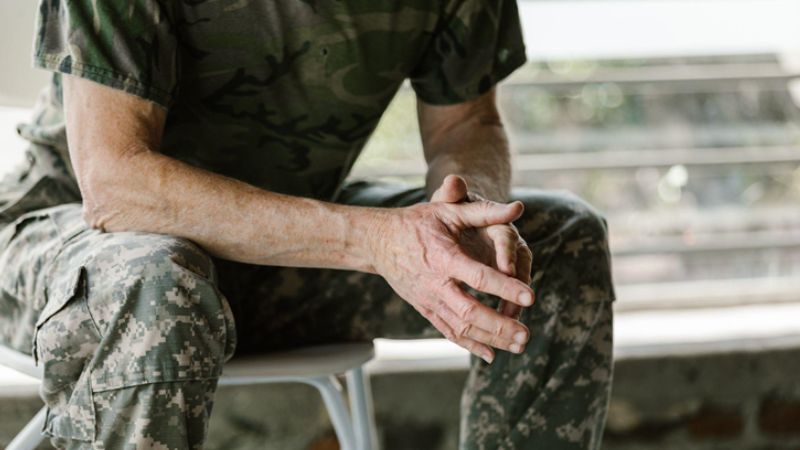Serving in the military requires nerves of steel. Guarding and fighting for your country with everything you have, including your own life, is a gratifying yet demanding occupation. Military personnel usually spend the prime years of their life away from loved ones, serving the country. Understandably, it can be exciting to come back home once you’ve retired from service. However, retiring after years and returning home to your family isn’t always easy.
Now more than ever, your extensive experience in the military has changed you, and you need to re-learn how to adjust to civilian life. To enjoy a normal life, you must focus on your physical and mental well-being. Many military veterans find it hard to overcome past experiences, affecting their mental health and social relationships, making life after retirement hard. Nonetheless, by following a few pieces of advice, retired military personnel can live happy, balanced lives.
Integrate a healthy diet into your lifestyle
During service, military personnel may be limited to eating ready-to-eat food, more popularly known as rations. The food they eat has a bland taste. It provides energy to the consumer but lacks vital nutrients that can be found in fresh, home-cooked food. The first habit you need to adopt after returning home is to include a healthy diet in your new lifestyle.
A healthy lifestyle is even more important because of the risk of developing veterans mesothelioma, a lung cancer common among military members due to prolonged exposure to asbestos during service. Mesothelioma Veterans Center aims to spread awareness amongst veterans and focuses on treating cancer. To avoid this and other illnesses, veterans should consume fresh fruits and vegetables, drink plenty of water and reduce or eliminate alcohol from their diet. After all, you are what you eat!
Socialize
The one thing people in the military miss during their service is regular human contact. Since units of the army are sent to serve in different countries and may also experience years of solitude, they get accustomed to loneliness. Once retired, it can be challenging for veterans to socialize with family and friends. You aren’t expected to enjoy big gatherings or parties but to connect with a few meaningful people daily.
To communicate with people, it’s also important to be empathic; but if you find it difficult to continue a conversation or make eye contact, you can start with baby steps. Meet and greet your neighbors and enquire how they’re doing. Share topics of interest and avoid anything that could be a bone of contention.
If physical contact makes you nervous, you can make audio or video calls to relatives or friends and check up on them. Finding out how people around you are doing and letting them know of your well-being can reduce stress and uplift your mood.
Find a hobby
It’s natural for veterans not to have any hobbies at the time of their retirement. Military service demands you sacrifice your hobbies as well. Once retired, you can invest your time in new hobbies that will help you feel good about yourself. This could also mean you get the opportunity to explore various activities.
You could enjoy outdoor activities like fishing or hunting and something quiet and peaceful like painting or gardening. You can spend time in whatever you think your calling might be. You could also visit community centers and meet people your age who share the same interests. Spending time on different hobbies can give you something to look forward to throughout the day.
Military veterans can also travel and explore new cultures and cuisines. Meeting people from different places can help you connect with your empathic side.
Exercise Regularly
Newly retired military members are more fit than ever. However, with time, they likely begin to gain weight. Ensuring physical fitness even after retirement is important not just for the body but for the mind as well. Morning exercise can help you stay fresh and energized throughout the day. Not just that, but staying physically active can help improve your mood and release stress.
You can run, jog, cycle around the block, join the gym, or go swimming. All of these are activities that’ll keep you healthy and mentally fit.
Develop Stress Management Technique
After retiring from years of military service, minor inconveniences can cause stress, anger, and anxiety to veterans. These feelings can bottle up and deteriorate your mental health. To control unsolicited emotions, develop techniques that work best for you to suppress stress. These techniques could include meditating, doing yoga, baking, or simply talking to someone who could hear you vent.
Moreover, you can identify and acknowledge incidents or words that might trigger your anxiety. The best stress management technique will be to avoid such circumstances if you feel you can’t handle the after-effects.
Ask for help
If you feel you can’t deal with the stress alone, you can always seek professional assistance. Visiting a psychiatrist or therapist will aid you in articulating your thoughts and understanding what stresses you out and how you can control it. Since military members have experienced trauma and death up close, it can be hard to forget those memories and move on. Many veterans complain of nightmares or insomnia that affects their mental health.
Attending therapy sessions will allow you to share the experiences that might still trouble you. These accounts will remain confidential, and you’ll be treated professionally. Regular sessions can help you feel lighter and focus on personal relationships.
Conclusion
Being a military member, you have served your country for years. Now you should spend time caring for yourself and improving your mental and physical health. However, for many, it is easier said than done. With the few pieces of advice we’ve elaborated, you can enjoy your retirement life.
Eating healthy, as well as exercising, will keep you up and running. It’s also important to connect with friends, family, and new people so that you have people to look out for you. Moreover, avoiding stress and anxiety is crucial for your mental health. If you feel you can’t help but feel stressed, it’s best to seek therapy. Caring for yourself after retirement will give meaning to your life and help you adopt a positive approach toward your relationships.

















